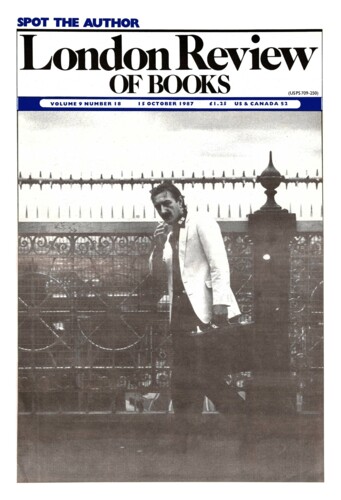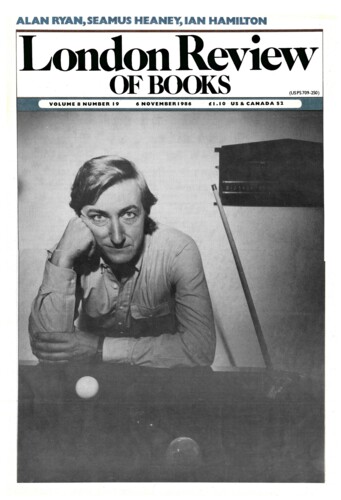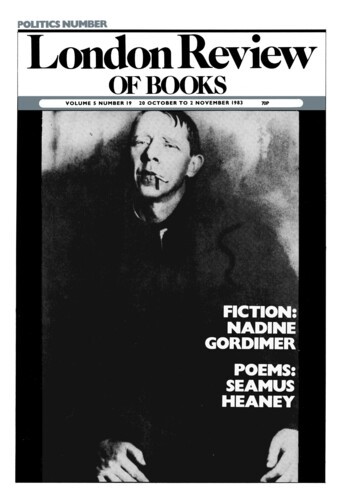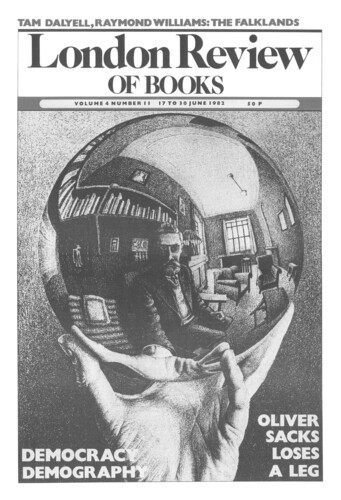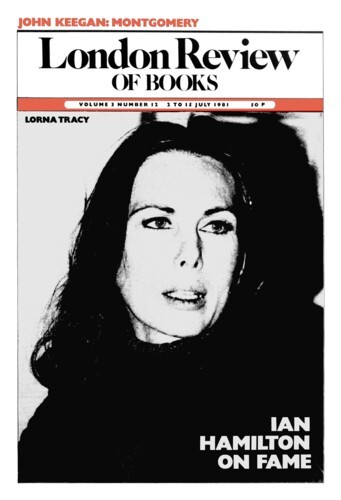Diary: On the National Curriculum
Jane Miller, 15 October 1987
Late in July, well into the schools’ summer holidays, two copies of a consultation document entitled ‘The National Curriculum 5-16’ were delivered at the offices of the education department in a London borough large enough to sport three MPs. Slack and irresponsible as ever, the borough’s three thousand or so teachers were, in some cases, actually away. No doubt some of the borough’s parents (currently the nation’s darlings – provided, of course, that they are not teachers themselves, or black or unemployed) were away too. Schools have been back since the first week of September. By the last week of the month the consultation proceedings had been completed, and a national curriculum is making its way through the legislative machinery in some haste. ‘As soon as possible,’ the document insists.’
